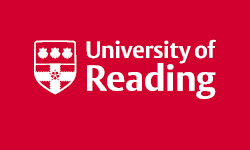Interdisciplinary Research Centres briefing
Friday, 22 May 2020

Interdisciplinary research is an important element of the University’s research strategy. It enables us to address challenges that societies face today through collaborative efforts that bring together different approaches in an innovative way. Interdisciplinarity analyses, synthesizes and harmonizes links between disciplines into a coordinated and coherent whole. It integrates knowledge and methods from different disciplines, using a real synthesis of approaches.
In September 2019, the University Committee for Research & Innovation (UCRI) approved recommendations to dissolve the current three-tier interdisciplinary structure, consisting of Interdisciplinary Research Institutes (IDRIs), Centres and Clusters, and create a single tier of Interdisciplinary Research Centres (IDRCs) in areas where significant strength and interdisciplinary growth was envisaged. An audit of all current Centres and Clusters which have not been approved as IDRCs will take place in the next few months and they will either be re-classified or closed.
The IDRCs will represent a critical mass of academic research excellence across more than one research division and typically across more than one research theme. Specifically, they will:
- Work across research divisions to generate funding bids and undertake research projects of a scale which can only be achieved by drawing on a wide range of academic expertise from different disciplines.
- Become a key component of the University’s research identity and to enhance its national and international reputation.
- Have clear alignment with strategic priorities in one or more research theme plans.
- Demonstrate a high level of staff engagement, which would ultimately lead to staff citing the name of the Institute/Centre in publications.
- Act as a clear focal point for engagement with researchers, funders or other stakeholders based outside the University.
- Have clear research leadership and direction and a critical mass of researchers.
IDRCs will be sponsored by a named Research Dean, who will support their development by providing advice, facilitating connections across the University and beyond, and providing feedback on performance.
Following a rigorous selection process, ten IDRCs were approved and will begin to operate on 1 August 2020. The successful IDRCs are listed below:
|
Centre Name |
Director |
Sponsor |
|
Centre for Cognition Research |
Emma Borg |
Roberta Gilchrist |
|
Centre for Literacy and Multilingualism |
Ludovica Serratrice |
Adrian Bell |
|
Centre for Film Aesthetics and Cultures |
Lucia Nagib |
Roberta Gilchrist |
|
Centre for Integrative Neuroscience and Neurodynamics |
Anastasia Christakou |
Adrian Willaims |
|
Centre for the Mathematics of Planet Earth |
Valerio Lucarini |
Phil Newton |
|
Institute for Food, Nutrition and Health |
Ian Givens |
Adrian Williams |
|
Walker Institute |
Rosalind Cornforth |
Phil Newton |
|
Samuel Beckett Research Centre |
Steven Matthews |
Roberta Gilchrist |
|
Centre for Health Humanities |
Andrew Mangham |
Roberta Gilchrist |
|
Centre for Book Cultures and Publishing |
Nicola Wilson, Sue Walker, Sophie Heywood, Daniela La Penna |
Roberta Gilchrist |
Professor Parveen Yaqoob, Pro-Vice Chancellor (Research and Innovation) said: “It’s clear that the most challenging research questions cannot be addressed by a single discipline or approach. The Interdisciplinary Research Centres represent our commitment to bring colleagues with the right expertise together to help solve global problems in a unified way across our four research themes: Agriculture, Food and Health, Heritage and Creativity, Environment and Prosperity and Resilience.”
Professor Roberta Gilchrist, Dean for Research (Heritage & Creativity), said: “My fellow Research Deans and I are delighted to be sponsors for the new Interdisciplinary Research Centres. They will stimulate creative connections across disciplines and innovative engagement between researchers. The centres will also enable our world class collections to be more accessible and they will maximise the impact of research in finding solutions to real world challenges.”
